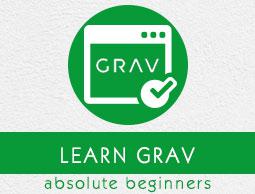Grav - Administration Panel Pages
In this chapter, we will understand how Administration Panel Pages work in Grav. Pages give an easy access to create, edit or delete the content to your site. In the administrative panel pages, you can view the list of pages created for your site and you can also create new modular or non-modular page for your site.
Adding New Pages
You can see that there are three buttons present at the top of the pages administrative panel as shown in the following screenshot.

Back − This takes back to the dashboard of administrative page.
Add Page − This creates a new non-modular content.
Add Modular − This creates new modular content.
Add Page
It creates non modular page for your site which consists of various fields while adding page to your site such as Title, Folder Name, Parent root etc.
When you click on the Add Page button, a popup window appears as shown below −

It contains the following fields −
Page Title − Here you enter the title of the page.
Folder Name − This is to enter the folder name for the page or the name will get generated automatically once you enter the title.
Parent Page − This sets the parent page for your newly created page.
Page File − This displays the selected theme template to the page.
Visible − This makes the page visible in the navigation bar by setting it to auto, yes or no.
After filling all the information in the fields, click on the Continue button. It will redirect you to the page editor.
Add Modular Page
Modular page enables to create a single page from its child pages. It has the ability to build complex one page layouts from modular content pages.
When you click on the Add Modular button, a popup window appears as shown below −

The window contains the following fields −
Page Title − Here we enter the title of the modular page.
Folder Name − This is to enter the folder name for page or the name gets generated automatically once you enter the title.
Page − This sets the parent page for your newly created modular subpage.
Modular Template − This selects the particular template to be displayed for your modular pages.
After filling all the information in the fields, click on the Continue button. It will redirect you to the page editor.
Pages List
This displays the list of the pages which are created for the site.

Here you can easily access your created pages and edit it.
Clicking on any title of the page, it will redirect you to the page editor for editing purpose.
The X icon at the right side of the page is used to delete the page.
The Filter box is used to find the page you are searching for. It filters the pages according to the types so that only pages like modular, visible and/or routable are displayed in the list.
The search box is used to find page when you know the exact name of that page.
When you directly hover on the icons on the left side of page, then it will show you the current status, i.e., Page . Routable . Visible . Published, it means that the page is visible via the URL and will be displayed in the navigation menus.
When you click on the page which is displayed in the list, you will see the following screen.

In the above screen, you have options to edit the page, add content or add images to your page. The Options tab consists of publishing, taxonomies and site map options which we study in Page Editor Options chapter. The Advanced tab contains the advanced options of the page like setting, ordering and overriding which will be covered in the Page Editor Advanced chapter.







